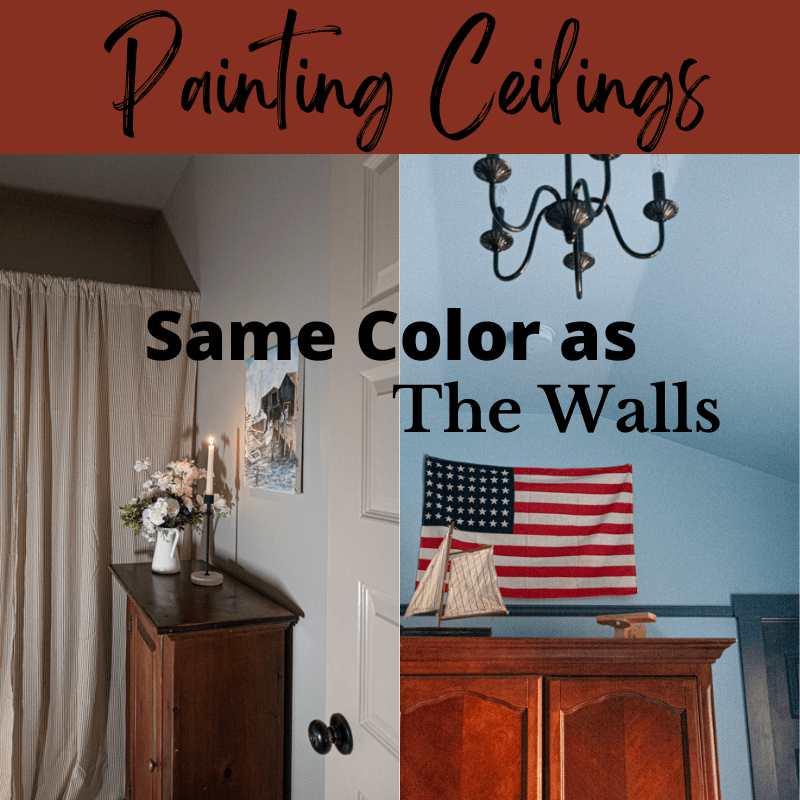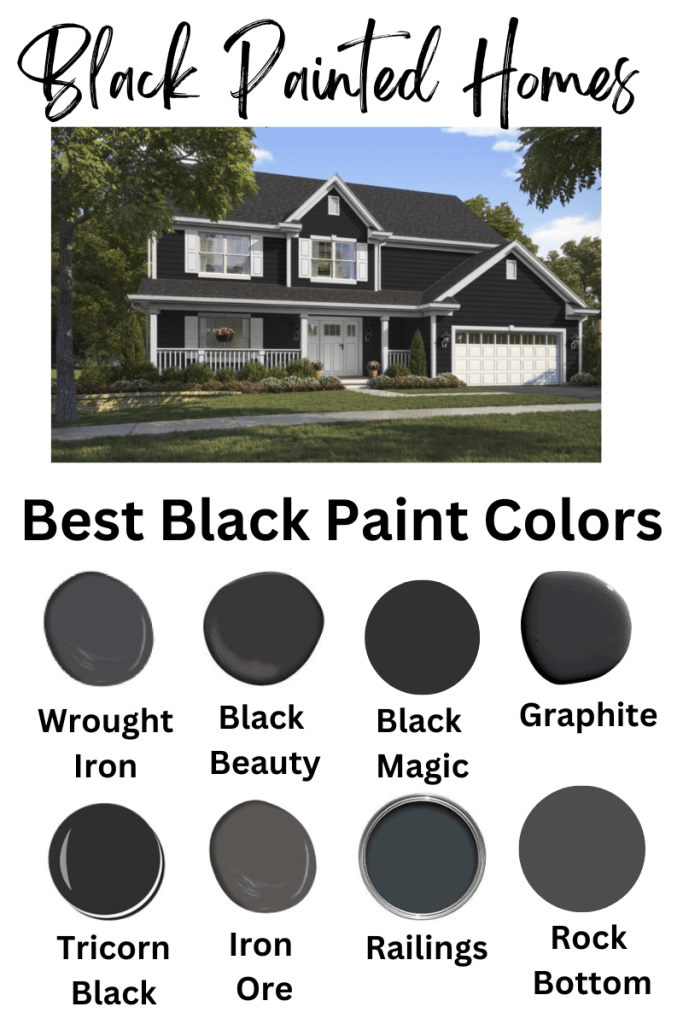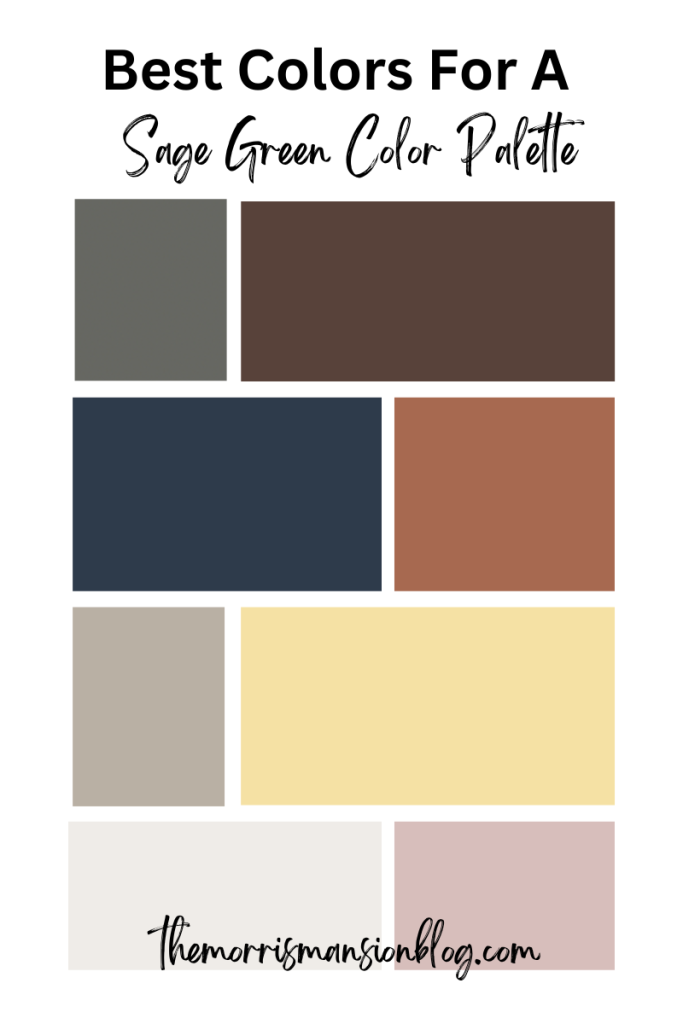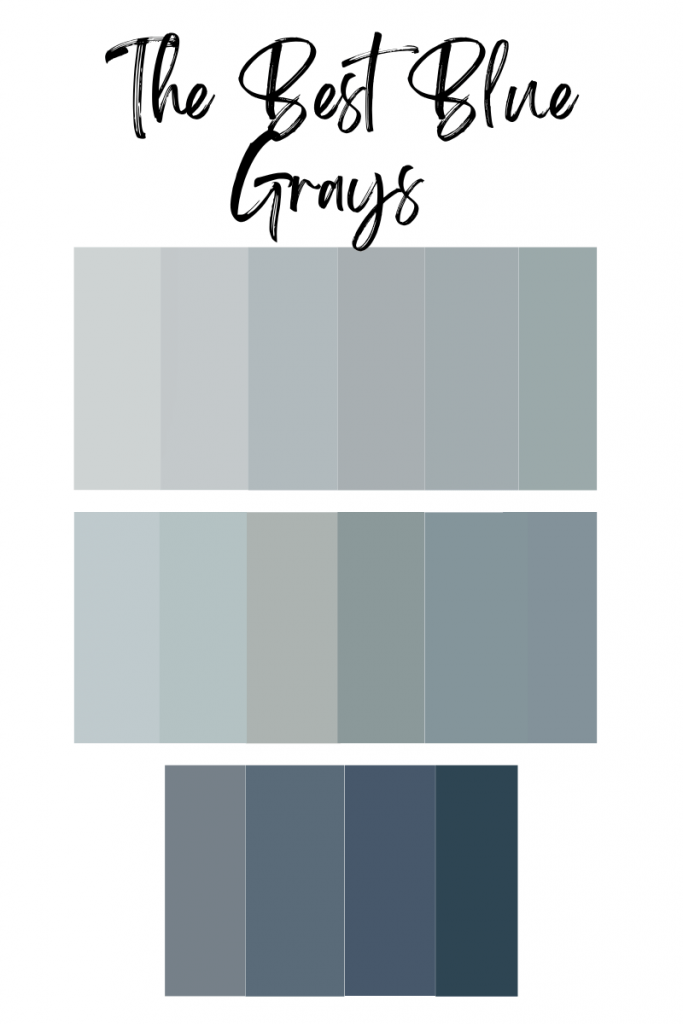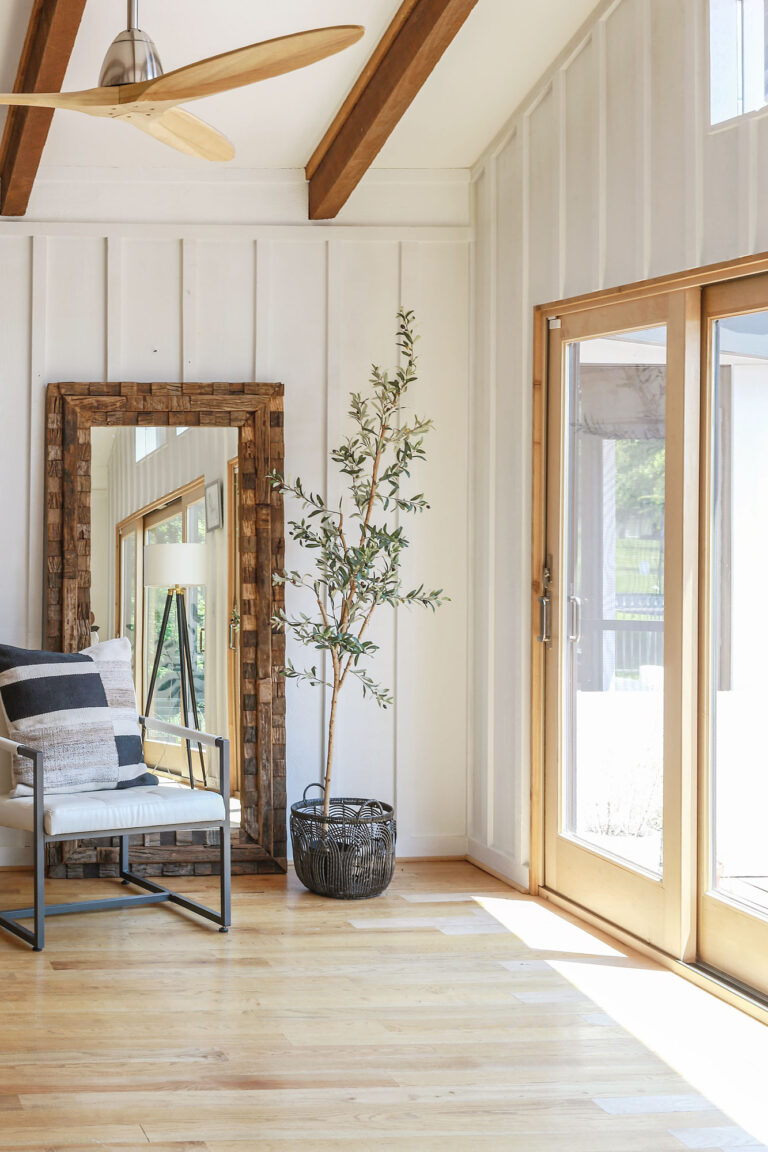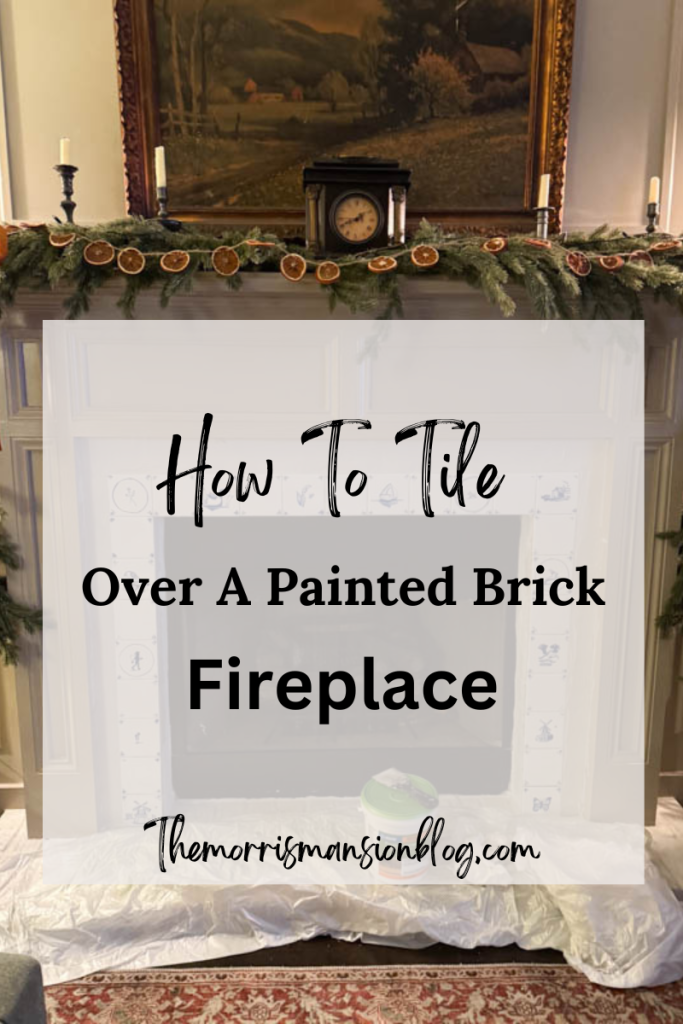Paint Ceilings The Same Color As Walls, Doors, And Trim: A Bold Design Choice
Painting ceilings the same color as walls, doors, and trim creates a cohesive look. This design choice simplifies color coordination.
Choosing to paint your ceilings the same color as your walls, doors, and trim can transform a room’s ambiance. This approach offers a seamless, unified appearance that can make spaces feel larger and more harmonious. It eliminates the need to match multiple colors, reducing the risk of clashing hues.
For smaller rooms, this technique can create an illusion of height, making the space appear more open. Additionally, it provides a clean, modern aesthetic that many homeowners find appealing. This method is particularly effective in contemporary and minimalist designs, where simplicity and uniformity are key elements.
:max_bytes(150000):strip_icc()/FINAL_Rasheeda_BlueLounge_01-d6c6a3ba78414b94a8d7fe9a252d8fe8.jpeg)
Credit: www.thespruce.com
Benefits Of Matching Colors
Painting ceilings, walls, doors, and trim the same color can transform your space. This approach brings several benefits, making your home feel more unified and inviting. Let’s explore the benefits of matching colors in your home decor.
Enhanced Cohesion
Matching colors create a sense of harmony in your home. Every room looks well put together. The consistent color scheme ensures each element blends seamlessly.
The color continuity helps in making small spaces feel larger. It eliminates the visual breaks that different colors create. Uniform colors also allow for more flexibility in your decor choices.
| Feature | Benefit |
|---|---|
| Same color for ceiling and walls | Creates a unified look |
| Matching doors and trim | Enhances overall design |
Visual Continuity
Using the same color for ceilings, walls, doors, and trim offers visual continuity. This means your eyes flow smoothly across the room without interruption.
This technique can make your home feel more spacious and airy. It also reduces distractions and helps in highlighting key decor elements. Colors that match make your space look clean and modern.
- Improves room aesthetics
- Makes spaces feel cohesive
- Highlights key design features
Opting for a single color palette can simplify your decorating process. It also ensures that your space maintains a timeless appeal.
:max_bytes(150000):strip_icc()/ChristinaKim_KipsBay2022_0746_Final_Light1-c2336e7faf1945e1ba7004528e3477d9.jpg)
Credit: www.thespruce.com
Psychological Impact
Painting ceilings the same color as walls, doors, and trim can profoundly affect our mental state. This simple design choice can change how we feel in a room. Let’s explore how this impacts our psychology.
Sense Of Unity
Using the same color on walls, ceilings, doors, and trim creates a sense of unity. The room feels more cohesive. This uniform color scheme can make spaces feel larger and more open.
When all elements match, the eyes do not get distracted. This allows for a more calm and focused environment. The seamless look can also reduce visual clutter. For many, this can lead to a more serene and peaceful space.
Mood Enhancement
A consistent color scheme can greatly enhance mood. Certain colors can evoke specific emotions. For example, blue can make you feel calm, while yellow can make you feel happy. By extending these colors to the ceiling and trim, their effects are amplified.
Additionally, a single color palette can create a cozy atmosphere. It can make the room feel more intimate and inviting. This can be particularly beneficial in spaces like bedrooms and living rooms. The overall mood of the room can significantly improve.
Choosing The Right Paint
Color Selection Tips
- Consider natural light exposure.
- Test paint samples on the walls.
- Choose colors that complement the room’s decor.
Finish Options
When selecting a finish for your ceiling, doors, and trim:
- Satin finish offers a subtle sheen and is easy to clean.
- Semi-gloss finish provides a durable, shiny look.
- Flat finish is great for hiding imperfections.
Room Size Considerations
Choosing to paint ceilings the same color as walls, doors, and trim can impact the feel of your room. The size of your room plays a crucial role in this decision. Let’s explore how different room sizes benefit from this design choice.
Small Spaces
In small spaces, using the same color for ceilings, walls, doors, and trim can make the room feel larger. This seamless look eliminates visual breaks. It creates a more cohesive and expansive feel. Here are some benefits:
- Creates Continuity: The same color unifies the room.
- Eliminates Clutter: Fewer color changes reduce visual clutter.
- Enhances Light: Light bounces better on uniform surfaces.
Consider light colors for small rooms. Light shades reflect more light. They make the room feel airy. Use a paint finish with a slight sheen. It adds a subtle reflection without being too glossy.
Large Rooms
Large rooms benefit from painting ceilings the same color as walls, doors, and trim too. This technique can make vast spaces feel cozier. Here are some points to consider:
- Creates Intimacy: A unified color scheme brings elements together.
- Reduces Overwhelming Size: Same color can make a large room feel more contained.
- Highlights Decor: Consistent color allows furniture and decor to stand out.
Darker shades can work well in large rooms. Darker colors can add warmth. They can make the room feel inviting. Use matte or eggshell finishes. These finishes reduce glare and add a soft touch.
| Room Size | Color Choice | Finish Type |
|---|---|---|
| Small Spaces | Light Colors | Slight Sheen |
| Large Rooms | Darker Colors | Matte or Eggshell |
Impact On Lighting
Painting ceilings the same color as walls, doors, and trim can transform a room’s lighting. This choice influences both natural and artificial light. Understanding these impacts helps create a brighter, more cohesive space.
Natural Light
Natural light interacts with paint colors in fascinating ways. Matching ceiling and wall colors can help bounce light around the room. This creates a more even and harmonious illumination. It eliminates harsh shadows and dark corners.
Light colors reflect more sunlight. This makes rooms feel larger and airier. Dark colors can absorb light, making spaces feel cozier but sometimes smaller. Consider the room’s size and window placement when selecting colors.
| Color | Effect on Natural Light |
|---|---|
| Light Colors | Reflects more sunlight, enlarges space |
| Dark Colors | Absorbs light, creates a cozy feel |
Artificial Light
Artificial light also interacts with your paint choices. Matching ceiling and wall colors can create a more uniform look. This can be particularly beneficial in rooms with multiple light sources.
Using light paint colors helps artificial light disperse evenly. This can reduce the need for additional light fixtures. It can also save energy costs.
Dark paint colors can create dramatic effects with artificial lighting. They can highlight specific areas and features in the room. This adds depth and interest to your space.
- Light Colors: Enhance and disperse artificial light
- Dark Colors: Create dramatic effects

Credit: themorrismansionblog.com
Application Techniques
Applying paint to ceilings, walls, doors, and trim can transform your space. It creates a cohesive and unified look. This section will explore the Application Techniques for achieving this seamless design. Follow these steps to ensure a professional finish.
Preparation Steps
Proper preparation is essential for a flawless paint job. Below are the steps to prepare your surfaces:
- Clean the surfaces: Remove dirt and dust from walls, ceilings, doors, and trim.
- Repair any damage: Fill holes and cracks with spackle. Sand smooth after it dries.
- Prime the surfaces: Apply a coat of primer to ensure even paint coverage.
- Tape edges: Use painter’s tape to protect areas you do not want painted.
Painting Methods
Different techniques work best for different surfaces. Here are effective methods for each area:
| Surface | Method |
|---|---|
| Ceilings | Use a roller with an extension pole. Paint in overlapping strokes. |
| Walls | Roll from top to bottom. Apply in a ‘W’ pattern to avoid streaks. |
| Doors | Use a brush for edges and a roller for flat areas. Apply thin coats. |
| Trim | Use a small brush. Paint in long, even strokes. |
Follow these techniques to achieve a professional finish. Your space will look cohesive and elegant. Happy painting!
Complementary Decor
Choosing to paint your ceilings, walls, doors, and trim the same color can create a harmonious and cohesive look in your home. This design choice simplifies your decor and offers a seamless backdrop for your furniture and accent pieces. The single color palette enhances the overall aesthetic, making your space feel larger and more open. Let’s explore how this approach can complement your decor with furniture coordination and accent pieces.
Furniture Coordination
Your furniture plays a crucial role in the overall look of your room. When your ceilings, walls, doors, and trim share the same color, it provides a neutral canvas. This allows your furniture to stand out and become the focal point of the room.
- Neutral Palettes: Pairing neutral furniture with matching walls creates a serene and balanced atmosphere.
- Bold Statements: Bright or bold furniture pieces pop against a uniform background, adding vibrancy.
- Texture Play: Mixing textures with your furniture adds depth and interest to the monochromatic setting.
Accent Pieces
Accent pieces are essential for adding personality and character to your space. With a single color for walls, ceilings, doors, and trim, your accent pieces can truly shine.
- Artwork: Artwork becomes a central feature, drawing attention and adding color.
- Rugs: Rugs can anchor a room and introduce patterns and textures.
- Pillows and Throws: These items add comfort and color, making the space feel inviting.
Here’s a quick comparison of how different accents can enhance your uniform color scheme:
| Accent Type | Impact |
|---|---|
| Artwork | Adds focal points and color contrast |
| Rugs | Introduces patterns and defines spaces |
| Pillows and Throws | Adds comfort and softens the look |
By thoughtfully coordinating your furniture and accent pieces, painting your ceilings, walls, doors, and trim the same color can create a beautifully cohesive space.
Common Mistakes
Painting ceilings the same color as walls, doors, and trim can create a seamless look. But, many make common mistakes that ruin the effect. Here are the most frequent errors and how to avoid them.
Overwhelming Colors
Using overwhelming colors can make a room feel too intense. Bright reds or dark blues can be overpowering. Balance is crucial. Choose softer, neutral tones for a calming effect.
Here’s a quick guide:
- Soft Whites: Ideal for a clean, airy look.
- Light Grays: Adds a modern touch without being overwhelming.
- Pastels: Gentle hues for a relaxed vibe.
Avoid colors that clash with your furniture. Keep in mind the natural light in the room. Too many bright colors can cause visual fatigue.
Ignoring Room Function
Ignoring the room’s function is another common mistake. Different rooms serve different purposes. The color should reflect that.
| Room Type | Recommended Colors |
|---|---|
| Bedroom | Soft blues, greens, or grays |
| Kitchen | Warm neutrals, light yellows |
| Living Room | Earth tones, muted pastels |
| Bathroom | Whites, light grays, soft greens |
Consider the room’s purpose and choose colors accordingly. Bedrooms should be calming. Kitchens can be lively but not too bright. Living rooms benefit from warm, inviting colors. Bathrooms look best in clean, fresh tones.
Frequently Asked Questions
What Is The Most Popular Color For Ceiling Paint?
White is the most popular color for ceiling paint. It brightens rooms, creates a sense of space, and complements any decor.
Should You Paint Walls Trim And Doors The Same Color?
Painting walls, trim, and doors the same color creates a seamless, modern look. It can make rooms appear larger.
What Color Should I Paint My Ceiling To Make It Look Higher?
Paint your ceiling a light color like white or pale blue. Light colors create an illusion of height and space.
What Is It Called When You Paint Everything The Same Color?
Painting everything the same color is called monochromatic design. It creates a cohesive and harmonious look.
Conclusion
Painting ceilings the same color as walls, doors, and trim creates a cohesive look. This approach simplifies the decorating process. It also makes small spaces appear larger and more unified. Embrace this technique for a modern, streamlined aesthetic. Transform your home with this easy and effective design strategy.

